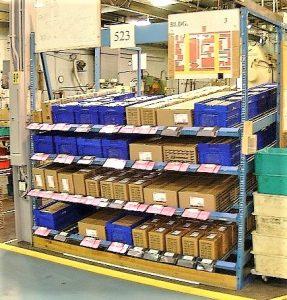
If you boil down Toyota’s production system to its essence, its purpose is to synchronize supply to demand for buyers’ markets. The ability to do so reduces the frequency and severity of stock-out (lost sales) or overproduction of finished goods (resulting in higher costs and price discounting). The practical outcome is that production, on average, does not get too far ahead or too far behind actual market demand. Getting it “about right” is good enough.
While buyers’ markets may set the price, closely synchronizing supply to demand helps the producer maintain close control of pricing (i.e. limit the magnitude of price variation, especially downward prices – loss of profit – due to overproduction). It is preferable for supply to slightly lag demand, but no so much as to keep customers waiting for too long. Tight supplies make the customer feel like they are getting something special, while the producer benefits from steady sales, good prices, and consistent profits.
You would think synchronizing supply to demand would be intrinsically appealing to CEOs, whether they produce a product or service. But for most business leaders, it has no intrinsic appeal. Why?
The CEOs attitude can be summed up this way: “It’s not my job to synchronize supply to demand. I am always looking to create sellers’ markets, to gain leverage, to set higher prices, and increase profit. TPS would interfere with that.” The obvious result is that CEOs have no interest in leading a Lean transformation. Any business instinct that might exist to synchronize supply to demand is quickly overrun by profit-seeking behaviors which, in time, become settled habits of thinking and doing.
To the extent that CEOs have any interest in synchronizing supply to demand, that work is left to low-level technicians and the enterprise software system – also known as “the schedule.” But, if an opportunity to make money arises, then the schedule is no longer valid. Intervention and imbalance is required, which is where the value of waste comes in. Waste is useful because it represents capacity to absorb abrupt changes in output, which will be frequent given business leaders’ objective of pecuniary gain. As far as unevenness and unreasonableness, CEOs pay employees to respond when called, whenever they are called. The more practice employees have with unevenness, and unreasonableness, the more skilled they become in managing it. Disruption is a skill to be mastered by employees so that executives can throttle output as-needed.
The potential profit reward justifies any risk posed by the existence of waste, unevenness and, unreasonableness. Thus, there is always a large gap between the business logic of money-making and the technical logic of synchronizing supply to demand. Business logic always prevails, except in rare cases.
The de jure nature of business means that leaders have little interest in the truth. Toyota’s production system requires all employees to discover the truth and improve efficiency and performance on behalf of customers. For the vast majority of business CEOs, TPS does not represent the accumulated wisdom of business, dating from centuries ago. TPS is a recent creation and has not yet stood the test of time. Classical management has the advantage because so many generations of business leaders have experienced it, and their accumulated experiences constitute the common stock of practical business knowledge. Therefore, there is no reason to change.
